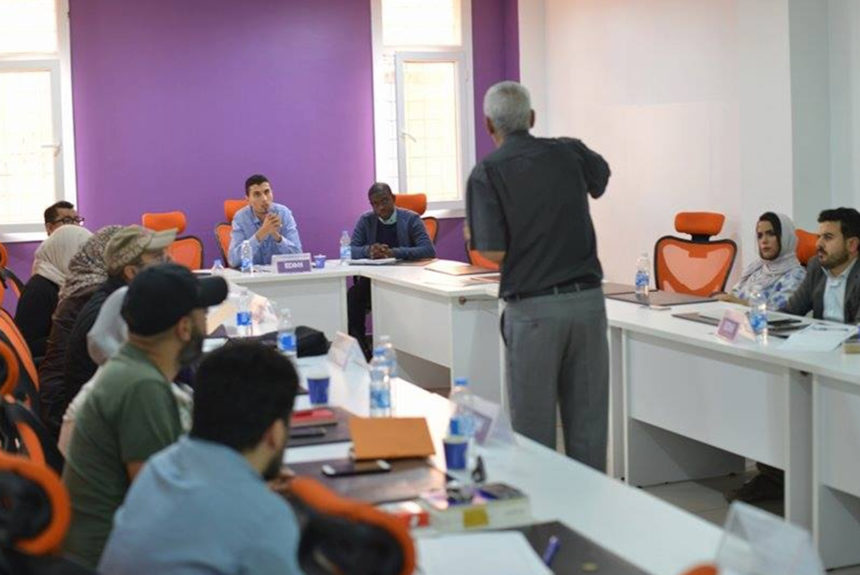The Libya institute for Advanced Studies held a training course on “Critical Thinking” in Tripoli.
Eighteen trainees from the various cultural and scientific sectors participated in this training course under the supervision of Prof. Najeeb Al-Hassadi, Professor of Philosophy, Benghazi University.
The course was about critical thinking, a science that is concerned with verifying assumptions and claims, examining their truth, or containing a part of the truth or its error. The lecture on the first day focused on the importance of critical thinking in science and culture and in our daily lives, and that the most complex and complicated human problems occur because we ignore the need to use critical thinking in solving these problems, and the extent to which our educational systems ignore the inclusion of such knowledge in their curricula, in schools and universities.
The lecturer then started to discuss the concept of knowledge, science and certainty, the extent to which we have misconceptions about these things, and the differences between the ancient and modern philosophical concepts of knowledge, as well as the source of knowledge between reason, sense, intuition and utilitarianism, between science in itself and between our use of it.
The course also discussed some of the famous logical fallacies that shape our lives, discussions, attitudes, and daily decisions. It pointed out the fallacies in these concepts, which, if we are aware of them, it will prevent them from becoming such daily social problems and address some of the logical problems that exist in the old logic. Some of the beliefs of the old logic do not fully answer many of the questions and dilemmas. He then touched on some moral dilemmas, the choice between which is like choosing between two matter equally bad. He then discussed some logical rules of debate and some of its conditions and powerful useful tools.
The session concluded with a panel discussion and questions between the trainees, the lecturer. They then distributed certificates of attendance and participation for the trainees and a certificate to Professor Najeeb Al-Hasadi in recognition of his efforts in preparing and implementing the training course.




